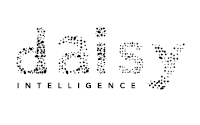
Insurance Companies Preparing Themselves for the Impact of AI
 Daisy Intelligence
Daisy Intelligence
For the insurance industry, artificial intelligence is a when not if proposition.
The ability for AI to dramatically reduce or eliminate manual work, improve the customer experience, and drive higher profits is tangible and compelling.
At the Connected Insurance Canada conference in Toronto recently, we had many great conversations with industry executives looking to get a better understanding of AI and how it could be applied to different parts of their organizations.
There was a lot of interest in AI’s impact on fraud detection and underwriting.
These conversations reflect the reality that AI is increasingly difficult to ignore as the benefits and competitive advantages become a reality.
At the conference, there were many presentations, workshops, and panels on the topic of AI, and they mostly focused on how insurance companies should approach AI strategically and best practices around technology adoption and implementation.
Gary Saarenvirta, Daisy’s founder and CEO, delivered a presentation on how AI can be deployed to win the battle against insurance fraud.
He focused on Daisy’s AI-powered risk management platform that takes a multi-faceted approach to fraud detection that is more effective, accurate, and successful than solutions using predictive analytics.
The Daisy AI technology is based on reinforcement learning leveraging a number of machine learning methods including probabilistic rules, predictive modeling, social networks, peer analysis, and fuzzy logic based outlier detection to discover and adjudicate fraudulent activity.
Daisy’s platform autonomously identifies claims, individuals, and networks of individuals that should not be paid. This makes it easier and faster for an insurance company’s investigators to pursue fraud to save millions of dollars in claims payments.
Eliminating investigators and adjustors from the process for claims is where the AI can really deliver and where financial materiality is low will enable a significantly greater amount of fraud to be avoided.
Daisy’s technology, which operates autonomously without humans in the loop, reduces false-positive from more than 90% (typical of predictive analytics) to less than 20%. This allows investigators to be more productive and successful.
“AI solves problems that humans can’t,” Saarenvirta said. “As more business goes online, the amount of fraud is increasing as we don’t see customers face-to-face. “Daisy delivers speed, decisions, and importantly substantial economic value.”
To learn more about how AI can tackle fraud, download our free eBook.




